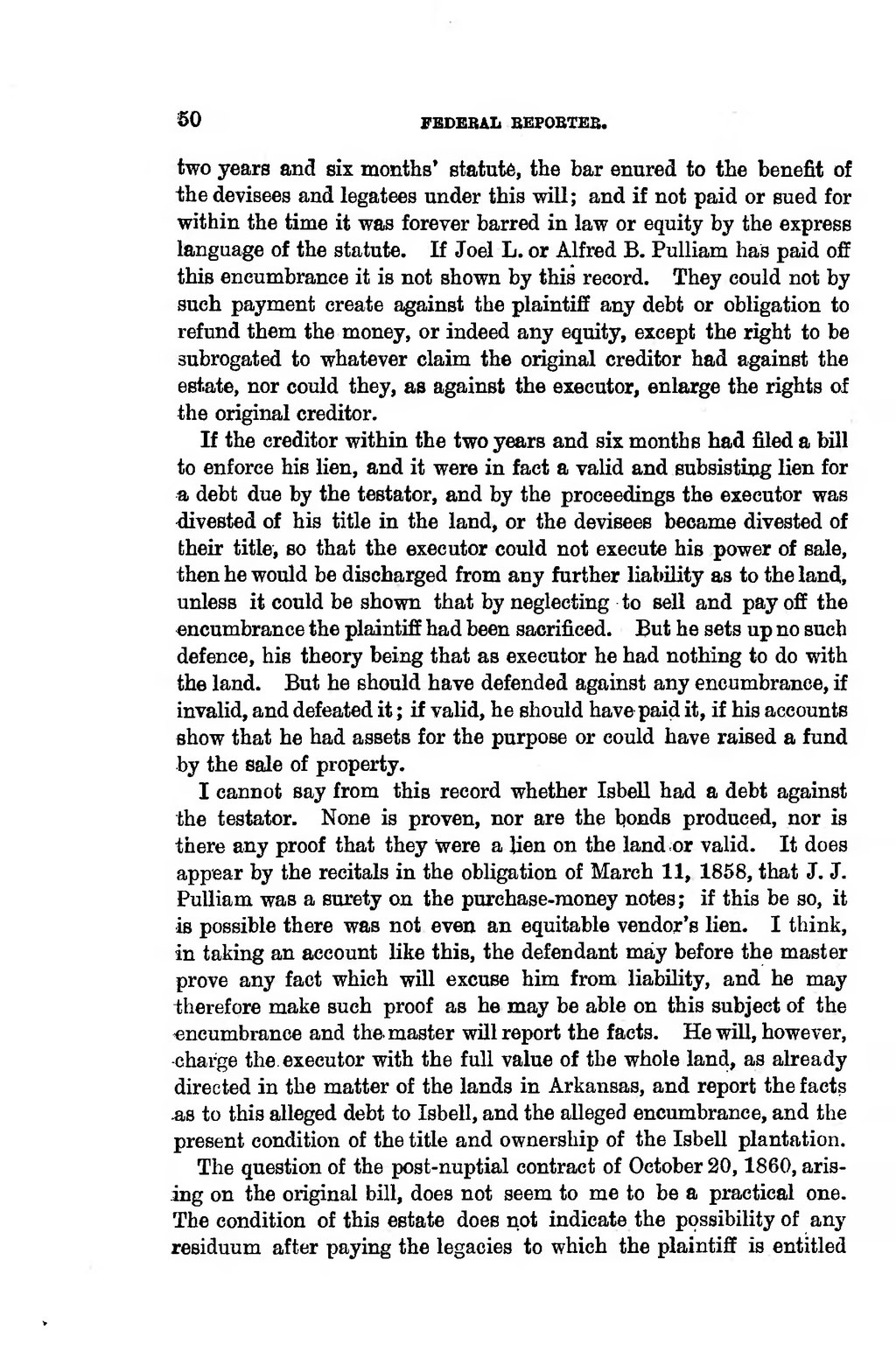50 FEDERAL REFOBTEB. �two years and six months' statute, the bar enured to the benefit of 1;he devisees and legatees under this will ; and if not paid or sued for within the time it was foreyer barred in law or equity by the express tanguage of the statute. If Joel L. or Alfred B. Pulliam has paid off this eneumbrance it is not shown by this record. They could not by such payment create against the plaintiff any debt or obligation to refund them the money, or indeed any equity, except the right to be subrogated to whatever claim the original crediter had against the estate, nor could they, as against the executor, enlarge the rights of the original creditor. �If the creditor within the two years and six months had filed a bill to enforce his lien, and it were in fact a valid and subsisting lien for a debt due by the testator, and by the proceedings the executor was divested of his title in the land, or the devisees beoame divested of fcheir title, so that the executor could not execute his power of sale, then he would be discharged from any further liability as to the land, unless it could be shown that by neglecting to sell and pay off the eneumbrance the plaintiff had been sacrificed. But he sets up no such defence, his theory being that as executor he had nothing to do with the land. But he should have defended against any eneumbrance, if invalid, and defeated it ; if valid, he should have paid it, if his accounts show that he had assets for the purpose or could have raised a fund by the sale of property. �I cannot say from this record whether Isbell had a debt against the testator. None is proven, nor are the bonds produced, nor is there any proof that they were a lien on the land or valid. It does appear by the recitals in the obligation of March 11, 1858, that J. J. Pulliam was a surety on the purchase-raoney notes ; if this be so, it is possible there was not even an equitable vendor's lien. I think, in taking an account like this, the defendant may before the master prove any fact which will excuse him from liability, and he may therefore make such proof as he may be able on this subject of the «ncumbrance and the master will report the facts. He will, however, charge the executor with the full value of the whole land, as already directed in the matter of the lands in Arkansas, and report the facts a.8 to this alleged debt to Isbell, and the alleged eneumbrance, and the present condition of the title and ownership of the Isbell plantation. �The question of the post-nuptial contract of October 20, 1860, aris- ing on the original bill, does not seem to me to be a practical one. The condition of this estate does not indicate the possibility of any residuum after paying the legacies to which the plaintiff is entitled ��� �
Page:Federal Reporter, 1st Series, Volume 10.djvu/62
This page needs to be proofread.
